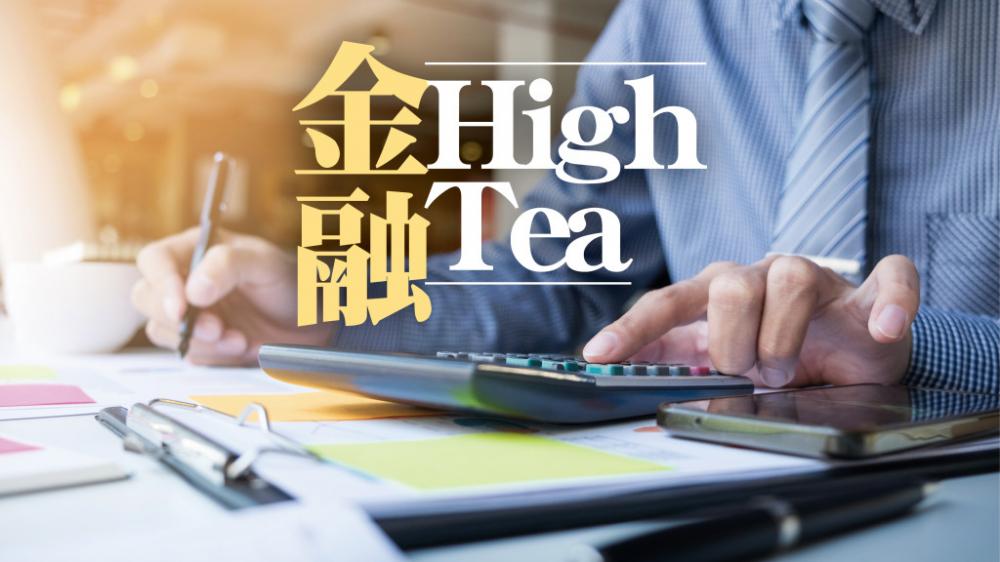After the United States raised interest rates in May, it once brought hope that interest rates would peak. However, as follow-up data showed that the unemployment rate was low, inflation resilience may be stronger than expected. Coupled with the hawks of some Federal Reserve Board members, the shadow of the global stock market is hard to remove. At the beginning of last week, although the Hong Kong stock market was excited by the valuation system with Chinese characteristics, the strong rise led to an even stronger retreat. Chinese stocks fell for several days in a row, and basically returned to their original shape or even “slumped”. The curse has not been lifted yet.
The stock market is difficult to play as the U.S. interest rate seems to stop
The direction of the Hong Kong and US stock markets was unclear last week. The Dow Index fell 8 points last Friday to close at 33300 points; the S&P Index fell 6 points to close at 4124 points; For the week, the Dow fell 1.1%, the S&P 500 fell 0.3%, and the Nasdaq rose 0.4%. In terms of individual stocks, the electric car maker Tesla (Tesla) raised the prices of Model X and Model S in the United States again, which stimulated the stock price to rise for a while, but the high level continued to fall, closing 2.4% backward; Amazon and Meta shares fell 1.7% and 10% respectively. 0.8 percent; IBM rose 1.6 percent.
U.S. interest rates seem to have stopped, and European interest rates are even more rigid, making the direction of the asset market uncertain. Hong Kong stocks are under pressure from rising interest rates, and their performance is a little weaker than that of U.S. stocks. Hang Seng closed at 19,627 points last Friday, falling for 4 days in a row except for the first trading day throughout the week. A total of 422 points fell in a week; the KCI fell 21 points; the State Index fell 134 points. The best performing blue chip this week was Hong Kong and China Gas (003), which rose less than 5%, followed by Alibaba (9988) and BYD (1211), both of which rose more than 3%. The top three worst-performing blue chips were China Hongqiao (1378), Country Garden (2007) and Shenzhou International (2313), all of which fell more than 10%.
Last week, investors were most “confused” by the Chinese stocks. Under the valuation system with Chinese characteristics, the news pushed mainland financial stocks, including mainland bank shares, to skyrocket. Mainland bank stocks have not been issued for three years. The first issue of the market has caused many long-term stockholders to sell and count. These investors hold domestic Silver stocks have been boring for several years. Although the interest rate returns are good, it is unavoidable to feel that the excitement is insufficient. Among the selling investors, the most eye-catching one is of course the Li Ka-shing Foundation’s sale of Postal Savings Bank (1658). This round of withdrawal is relatively rapid, but the mid-to-long term trend is still stable, and dividend-earning shareholders are still sitting firmly on the fishing boat.
Li Ka Shing Fund sells Chinese stocks and harvests
Regarding the sale of goods by the Li Ka-shing Foundation, the Postal Savings Bank of China said that it originated from the financial arrangement of the foundation. The Li Ka Shing Foundation holds a large amount of assets to collect interest, which is used to support various fund activities. It is necessary to raise funds at an appropriate time. Postal Savings Bank’s stock price exploded in a short period of time, which became a harvest opportunity. This strategy is reflected in the US water collection and rising capital costs. Next, long-term speculation is no longer long-term profit Next, the coping strategies of large investors. Looking at the general environment, in the past, many big players in the market have turned their hands into clouds and turned their hands into rain. The big players who created the current situation no longer spend a lot of money. In Guxi, if there is buying and selling, it is considered loose. If the hands are tight, they will sell more and buy less, or even sell but not buy. It seems that after Softbank announced a large loss in its performance, the sale of major assets seems to be used by Alibaba to cut flesh and mend wounds.
The cost of capital has risen, and the big investors no longer invest in water, and the bets on hand are turning around. It seems that another big investor Soros recently sold the electric car stock Tesla and bought the streaming film and television platform Netflix. Although Tesla has recently cut prices to seize market share, large investors believe that this new industry is mature, and the stock price reflects the profit prospect ahead of time, resulting in many sellers and difficult to rebound the stock price. However, the prospects for Netflix, which Soros bought, are not all clear. The management has to think hard about how to hand over the profit report to shareholders. In order to maintain performance and support valuations, the management disclosed that it plans to cut expenses by US$300 million (approximately HK$2.34 billion) this year in order to continue to work hard to improve profitability in the competitive market.
In the days when funds were cheap, large fund investors only cared about growth and not about returns. Now that cash is valuable, the management needs to deliver results. However, under the tightening environment, it is not easy to make money by expanding the market. The big pie becomes a competitive benefit, and the funds of the big players are transferred around. Warren Buffett is another example. Since last year, the stock god has slowly sold the BYD (1211) he held in hand, but the effect of large households selling goods is getting higher and higher. The method is quite pleasing to the eye. This is also related to the management of BYD. . The group started a comprehensive transformation last year and completed the abandonment of the production of traditional gasoline vehicles and turned to new energy vehicles. Now, both high-end and popular models have selling points, and they are in the forefront of global electric vehicles. Seeing the company’s performance, the stock god doesn’t need to rush to sell even if he wants to sell; however, the increasing accumulation of funds on hand shows his views on the rising cost of capital and the value of cash.
Under the central bank’s closing down, the asset price level has dropped, and even the big players can hardly regain the days of long-term speculation and long-term profits. Even if they move funds around, they can only eat three times. The explosive rise of stocks has triggered a wave of big and small households selling goods and food, and the relevant stocks will retreat if they do not advance. The valuation system with Chinese characteristics is a brand-new concept, and it cannot be pushed hard. In the end, the market must accept it. There are many details that need to be deconstructed before the market can have a chance to be convinced. The most important thing is that in the next few years, the mainland’s economy must be able to operate effectively, drive these companies to make profits, hand over their homework, and prove the company’s quality with actual performance, so that the valuation can truly increase.
Banks are relatively better when the cost of funds rises
As the cost of capital rises, investors need to increase the rate of return in order to balance the risks involved. For most businesses, meeting this requirement is like sailing against the current. It is difficult and difficult to achieve. Some industries, such as real estate, are more directly affected. I heard that the number of mortgaged properties that finance companies have recently recovered debtors has increased significantly.
Relatively better is the banking industry. Banks in Hong Kong are very conservative in their business operations. There are properties with low mortgage-to-loan ratios, and the risk of bad debts is low. Recently, the interest rate has risen to 5%. HSBC (005) and BOC Hong Kong (2388) are favorable. BOC Hong Kong’s profit before provision in the first quarter of this year increased by 14%, but the stock price trend is weaker than HSBC. The current price is close to a one-year low. Although it cannot be called a very high interest rate, the risk of a fall should be limited.
Jin Riku
2023-05-14 16:00:00
#Yuren #big #investor #musical #chairs #flutters #aroundFinance #High #Tea


